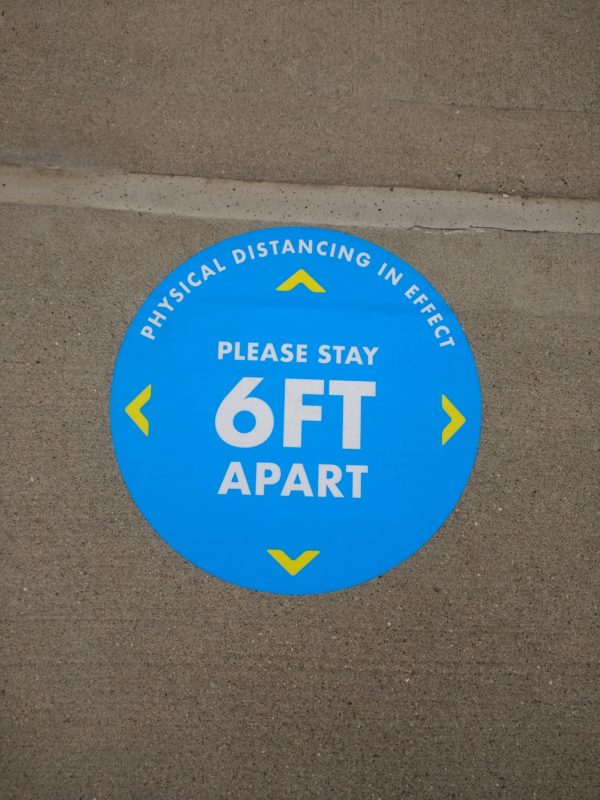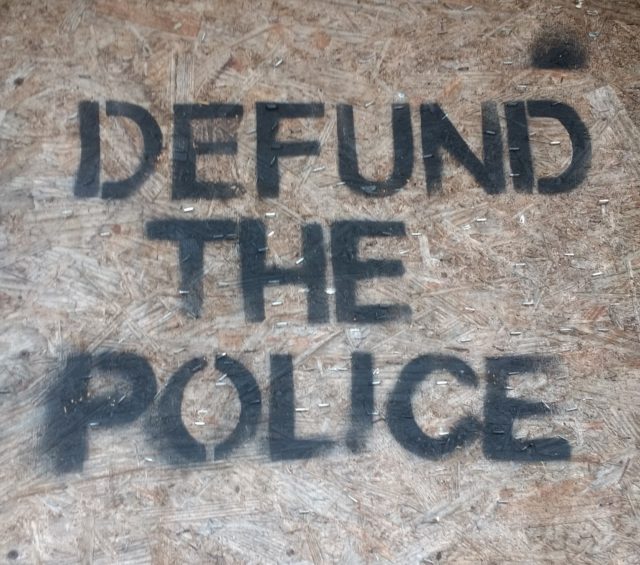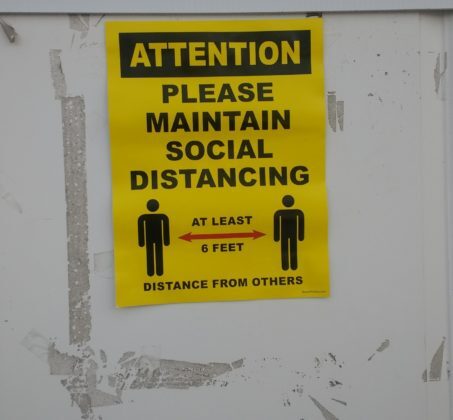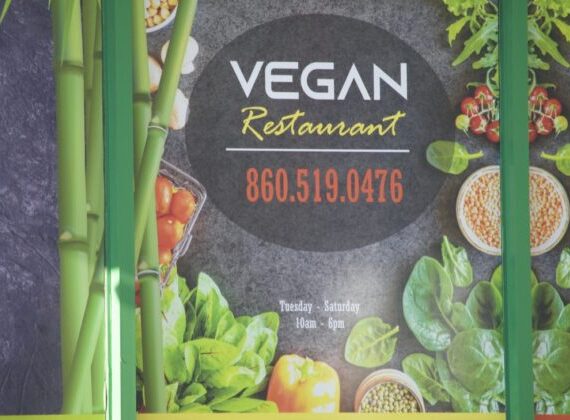Changing a page on the calendar is not some magical act that can dramatically shift everything, but maybe we can resolve to be better about the language we use, and by “better”, I mean we can opt for more precise wording.
Here are the words, phrases, and hashtags that I’d like to see ditched, and in one case, just used correctly.
- social distancing: This is the worst. Did nobody at all when they were devising this phrase say “WTF does that even mean?!” because I have. Every single time I see it or hear it. What y’all want to say is “physical distancing”. It does not matter if you are being social or not. If I am standing next to someone who is sneezing and coughing away, maskless, and we are not talking or being sociable, and I am giving side-eye, I am still at risk of getting whatever nastiness they have. It’s already a clunky phrase — what’s one more syllable? Not all have gotten this entirely wrong. The Wadsworth Atheneum, for example, placed stickers on the sidewalk using precise, accurate language:

- #StayHome: Like the aforementioned phrase, this one has been interpreted so many ways. To me, “StayHome” means to literally stay in one’s house, which presents a problem for those who are experiencing homelessness and who were definitely forgotten in the early days of the virus. It also doesn’t address in any way what people experience when their “home” (and I hesitate to call it that) is an institution like a prison, where the inmates have no control over their environment. And what about those whose homes are not spacious raised ranches? What does it mean to “stay home” when there are eight people living in a one-bedroom apartment?
The other problem with #StayHomeStaySafe is that it has allowed people to believe that the home is a safe space. Let’s talk about what goes on in some of these homes: those small gatherings that medical professionals are warning against. People getting together with family and friends, no masks. This is known because people put photos of everything on Facebook and Instagram, and it takes no work to go back two days, five days from that event to see that those involved were not quarantining in advance but doing other things like participating in weddings. Hell yeah, I’m gonna judge that. An extension of this nonsense is what we’ve gotten by the mythology that drive-thru is a safe option. Guess what that has produced? Cars of unmasked family and friends, who are not in any bubble and were not quarantining prior, riding together through holiday light displays or going to drive-in movies. I’m rambling, sure, but I’ve refrained from leaving snippy comments on people’s posts all year long.
And one more thing: can we talk about how many people I’ve seen use the #StayHome and #TogetherApart hashtags, only to turn around and do neither? I’ve seen the trendy slogan adhered to profile pics of people unmasked on yoga mats. It’s attached to photos of people on airplanes. Anything can be appropriated and twisted, and that’s all the more easier to do when a concept was an empty shell to begin with.
It might not make for a catchy hashtag, but we knew enough back in March 2020 to say: “To reduce the spread of a deadly virus, do these things: stay at least six feet from others and wear a mask over your mouth and nose when physical distance is not possible; wash your hands with soap and water for 20 seconds and use hand sanitizer when that is not possible; avoid touching your face with dirty hands; if feeling sick or possibly exposed to the virus, stay out of public places except to get tested.”
- flatten the curve: That started as a cute plan, but having a steady number of infections when that number is pretty high isn’t so hot either. Plus, this phrase presents that same issue as “social distancing”: it’s opaque.
- unprecedented: This is a case of people using the word ridiculously wrong, and not an issue with the word itself. This word has been tossed about carelessly this year, which feels like a particular sin when the Supreme Court has been front and center in the news. If for no other reason, learn how to use this term accurately so RBG can stop rolling in her grave over it. A precedent is an earlier event, decision, or action that can behave as a guide for future choices on similar matters. Something that is unprecedented has never been done before. COVID-19 has not created an unprecedented situation, as a whole. Is this pandemic an unprecedented experience for nearly every person currently alive? Yes. Is it unprecedented historically? Not in general. Just last century we were dealing with the 1918 influenza pandemic, and while we did not have Internet giving people the chance to work certain types of jobs from home or watch movies privately or visually connect in real time with relatives on the other side of the globe, we absolutely had a similar situation: a deadly virus without a vaccine. Unlike Covid-19, which is most life-threatening for the elderly and those with pre-existing medical conditions, the 1918 flu was very deadly for that group plus young children, plus otherwise healthy people in the 20-40 year group. The vaccine was not created in under a year, and it certainly was not distributed to the wide public until decades later. So, in specific ways this experience is unprecedented, and yet the word seems used in place of “horrific” or “hard to comprehend” or “catastrophic,” all of which would be more accurate that the u-word. Science is full of precedents. Devising new vaccines means understanding previously created ones. Even the anti-mask whining is not unprecedented. I didn’t experience that, but my grandparents and great-grandparents would have seen it, and as I hope we realize, just because a person does not directly experience something does not mean it does not exist.

- Defund the Police: I’m with Obama on this. The concept is not the problem, but trying to take a complex idea and distill it into a catchy phrase is where we went wrong. The question to ask ourselves is do we want to, trumpian, refuse to admit that a strategy needs work? Or do we want to ditch the sloganeering and see actual change happen? Do we want to be right, or do we want to win? Why continue to stick with something that should have been vetted better, including by those who might have predicted that the powerful cop unions would fight back? While there are some individuals who do want to completely defund and dismantle the police departments, that’s not what this phrase has been used to signify. I know “significantly restructure and reform the police” doesn’t fit as well on a protest sign, but it is more accurate. As someone who does not want cops being the default responders when a civilian is having a mental health issue, I think we could “Re-imagine the police” or “Redefine the police.” By redefining what their job responsibilities include, we would be able to reduce the budgeting for police because many tasks would go to actual social workers and others. All of this is to say that we need to revive attention spans and stop forcing complex ideas into soundbites.
- virtue signalling: The constant claims that someone is virtue signalling work as a way to derail the actual conversation. I’m reminded of the anti-intellectualism that thrived during the GWB years…except now we have this with backlash against those possessing values. It’s not that we should not be critical — thinking of all the people who rushed to replace their social media profile pic with a black square in June but who remain living in racially segregated neighborhoods and continue to make veiled remarks about whether or not I am safe living in Frog Hollow — but that often this critique of whether or not someone is virtuous moves away from finding ways to, for example, dismantle White supremacy.
- Becky and Karen: Using racial stereotypes is never acceptable. Why, then, has this trend gotten any traction? Instead of using racial shorthand, force yourself to say exactly what you mean. Additionally, this must be annoying for people who are actually named Becky or Karen. Only one of the Karens that I know would act like a “Karen,” except she’s too busy managing her own household probably to be on the phone with the cops over trivial things anymore. Just stop. It’s rude. Dwelling in this space of catty racial stereotypes means not using energy to make policy and systemic changes.
- holding space: This is another case of “say what you really mean.” This phrase holds hands with “Janie was always there for me.” Where? Where is there? These are vacuous euphemisms. Anyway, I don’t need anyone to hold space for me. Hold a jar of soup and box of cookies for me on my front step instead. Hold your tongue when you’d be inclined to gossip. Hold my place in line.
- embodied: I actually liked this word until people began using it wantonly. There was a podcast I was listening to and between the host and the guest, some variation of “embody” was used six times in five minutes. I had to shut it off before I made it beyond the ten minute mark, which stunk because the subject matter promised to be interesting, yet every single time the word was used I had embodied cringing and stopped listening.
- gaslighting: For years I taught rhetoric and professional writing to college students, and when we would get to the lesson on using fresh language, I found a way to steer them away from clichés. I asked the class to briefly close their eyes and raise their hand if they knew what an actual, literal melting pot was. The word “actual” would create confusion for a some, but once we established that I was not looking for the metaphor about cultures in America, there was exactly one student in all those years who knew what the phrase meant. Every time I hear the word gaslighting, I wonder if the person using it knows what it refers to for real, and if they happen to also know what a melting pot is. So, there’s that aspect of why this phrase needs to be shut the hell down, but here’s another: it’s unnecessarily kind. Why not just say “lying”? Is that too intense and direct of a phrase to use in 2020? Back in my day, we called these people pathological liars. Straight and to the point.

